I wasn't raised A'Victadi -- my whole life I thought I was just an Artazian with a peculiar hatred for Avartarian. But I suppose it makes sense, the way I am, that I come from a long line of people chose stories over violence.
Patrons click
tap
here for bonus info
Once an ancient migratory civilization, the A'Victadi wandered the icy mountain slopes and made homes among the great old growth trees of what would eventually be known as the country of
Artazia. They lived mostly in temporary dwellings, and were known for their cultivation of flowers and crops, as well as their domestication of the
Okororo.
These days, with industrialization consuming the landscape like an unstoppable ravenous monster, the A'Victadi have not the space to practice their traditional migration. Much of Artazia in particular pushes for more progress and machines in greater number; in result, the A'Victadi ways are at risk of erasure. Yet there is hope -- as people discover their cultural roots and storytellers share history, a small resurgence in A'Victadi tradition is currently occurring.
Picture yourself back, far back in time. Back when the gods still ruled over us all, shaping the planet from which we worshiped them. When blood of mortals was spent under orders from the
Divine Victorious.
Lets step back into the past; let us meet with an ancestor, and listen to an ancient tale. We're going back to examine the origins of a people weary of violence, of death. The A'Victadi, those who turned their back on
Avartarian, and became the Stewards of the mountains.
Who We Were
Combat. War. Death.
Rules written by the
victor, it was said. The law was made by the strong, and the only form of strength they seemed to care about was physical.
Avartarian he called himself -- a
god. Hundreds of meters tall, capable of
so much destruction. They all had their "interests", these gods. Some were focused around the concept of growth and decay, while others professed a pure and simple love of the ocean. "Our" god though, believed in might.
Victory and Resistance.
Power over others -- and power in spite of others.
Eventually, it became too much. While it wasn't impossible to leave a god's flock, it was seen as a poor choice; for how can one live in this world without divine intervention?
Still, there had been enough. A large enough population of Avartarian's flock decided to brave the godless wilds, and turn their back on the life that they had known before. It was a great migration, the first of many for our people. To the mountains and across the glaciers, down the slopes to the ancient woods, marking the traditional biomes our people would feel at home within. They took on the name that we know ourselves by today -- the A'Victadi, Victory Abstained.
Over hundreds of years, the population of the A'Victadi waxed and waned, fracturing many times, yet always coming together under a common purpose once again. Through these years, born out of a survival need, traditions grew and flourished like winter wildflowers among the snow; vibrant, striking, and resilient against otherwise harsh conditions.
What We Learned
In absence of divinity, the natural world became our guide. The flow of the land, the paths of the animals, the story of weather; all taught us lessons that ensured our survival. All became core to who we were as a civilization. We followed the giant feathered
Okororo through the snowy mountains and across the barren glaciers, learning routes across the ice and locations of shelter.
Over time our presence became natural to the flightless birds, and they became our travel partners; we became part of the flock, pruning feathers to prevent overgrowth, and then in turn wearing those feathers to protect against the cold. Our clothing, bedding, and shelter soon consisted almost entirely of white and gray woven feathers.
We observed the way small forest animals flourished; exceptionally messy eaters, forgetful, yet acting as the tiny arboriculturists of the woods. We learned what was safe to eat, what grew fast, and what would survive the winter. We saw seeds strewn about that formed the new generation of trees, beds of budding wildflowers, fields of snow with hardy winter grass; all new life to foster and care for.
This too became woven into our daily lives, and represented within the clothing that we wore -- the flora became one of our central motifs, and the flowers in particular served as the base of dyes that marked great honor among our people.
Care of nature became of utmost importance to our people; it became ingrained in our very sense of self. Something to be passed down to new generations, a tradition that would hopefully outlive us all.
The A'Victadi, shaped by the world, began to shape it in turn -- to foster and grow it into a vision of peace and beauty. Whenever they could, our people would spread life, and work to ensure its survival. It did not take long before the telltale signs of A'Victadi influence began to be seen across the all parts of the Artazian wilderness.
How we Thrived
Perhaps our most vibrant and reverent ritual, the creation of the Resplendent Towers, is also likely the ritual that made the biggest impact on our environment. Making these colourful beacons in the woods was directly responsible for the cultivation of many new types of flowers, and the spread of them across the land.
The wildflowers of the Artazian interior, naturally located along the edges of the great ancient forests, were a hardy plant -- able to survive in harsh conditions, yet struggling to take root in new locations. We felt a remarkable connection to this, to how we survived but never quite took root in any one location after leaving Avartarian's flock. Just as with the
Okororo, we became symbolically linked with the wildflowers; where we went, so too would they.
When our people moved through the ancient forests, along with us came bags of flower seeds, capable of growing into a veritable rainbow of strong and beautiful flowers. We took cues from the current environment, and began to work to adapt the flowers to it -- in particular, we looked to the thick and hardy moss that clung to the bark of the massive and ancient forest trees.
If ever we found one of the forest's great trees knocked over, be it by wind or disaster, we would convert the fallen guardian into a Resplendent Tower. Branches would be stripped until all that was left was a single thick trunk. Our wildflower seeds would be mixed with the most fertile soil available, and spread across the entirety of the tree's bark, just like the moss before.
Held to the surface of this stripped tree with a mesh made of finely woven natural fibers, this new tower would be carefully stood up once more. Carefully integrated with the ground and supported to ensure it wouldn't fall again, this tree would soon become host to countless blooming wildflowers, and over the course of a couple weeks, become a vibrant beacon of colour among the otherwise emerald green forest.
Eventually, the tree would fall again. But not before it had served as a tower of joy -- and not before the blooming flowers spread their seeds across the landscape. The migrational path of the A'Victadi was often marked by the rainbow landscape of beautiful flowers they left behind.
One day, the world nearly ended.
The gods fought; a battle born of mistakes, deaths wrought from millennia old grudges -- the world paid the price. Much of humanity died, while great darkness and horror grew and began to overrun the world. Life, already a precarious balance in the wild, became even more of a struggle for the A'Victadi.
Why we Perservered
Death. Combat. A brutal life. All those things our ancestors had once fled, those parts of living under Avartarian that were so antithetical to our way of life, came crawling back out of the darkness wrought by
The Seven Day War. But the one thing that tied humanity together, the one thing present in both the wildflowers and the Okororo and all the other natural life that must fight to survive every day, is our resilience. We once again looked to nature to learn how to survive in these changed times, to avoid the
Rendlings, and to flourish within the shadows.
And with disaster came the opportunity to build anew, to build back to what we had before, in a better way. The necessity of this dangerous life had us building stronger shelters, though still in a modular and temporary format, as we'd always ensure to be as far from Rendling hot-spots as possible. We tweaked and coaxed our crops and our plants into new life, some that grew faster, took to new environments better, or survived in worse conditions easier. Many of the modern staple crops that have been transplanted across the entire globe can be traced directly back to us during this era.
Gradually we adapted to the new era of human civilization -- the human era, as we soon began to realize. As we learned how to avoid and handle the Rendlings, so too did we learn that
Avartarian, the god we had fled, was no more -- he and all the other gods had shared the same fate. Reduced to a husk, still terrifying and dangerous, but with significantly less influence.
So we had hoped; interactions with humanity that remained with Avartarian showed that teachings from the God of Victory were far too ingrained to be removed with any sort of ease.
Slowly in the dark and uncertain times, the threads of humanity began to weave together once more. Direct godly influence existed no longer, even if their lessons still lingered within the majority of surviving cultures.
The A'Victadi, once a very closed group, began to open up to other civilizations, teaching of their ways, and learning of others.
Where we went
Humanity built back stronger than ever before. Unrestrained, unrestricted, truly free, humanity thrived. But to us, it almost seemed like the replacement of one master with another -- now the unstoppable force of progress dictated life on the planet. And as we reached the modern era, it seemed like while we would survive, our culture might not. No longer were we able to travel the vast wilderness in migratory paths, with naught but nature to guide us; one could scarcely travel for a day without running into some outpost, settlement, or industrial region.
And besides, all of this rapid progress brought comfort and ease to the world as well. What was the point in migrating with the weather and following the animals when permanent shelter could be built with local food sources readily available? Gradually, we faded, and were almost lost in the worldwide mosaic of humanity.
What saved us, what saves many cultures that become overrun with industrialization and sanded down to homogeneity, were the stories of our past. With an unrelenting push to the future comes equally a chance to look to the past; our elders and story keepers seized this chance to revitalize interest in our cultural ways within the youth. In hopes of sharing our culture, in going back to our roots, we once again took to our ancient practices -- this time as more of hobbies, teaching opportunities, or spiritual journeys rather than an actual way of life.
Most famously, the creation of woven feather clothing and shelter dyed in vibrant hues came back into fashion for our culture, and it's become what we're most known for today.
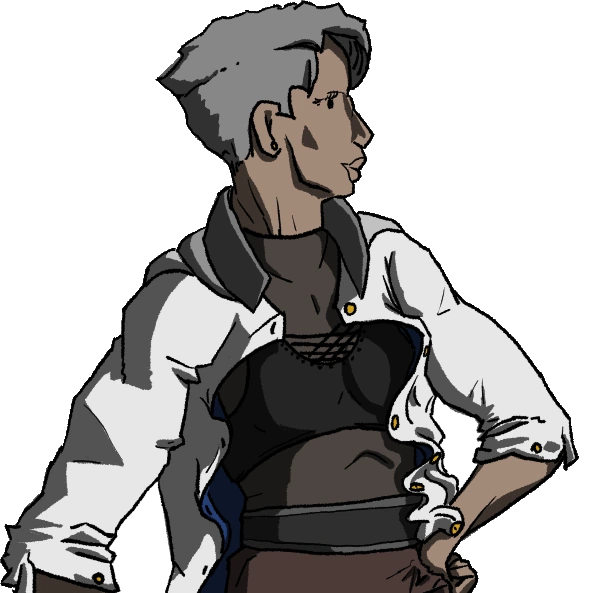
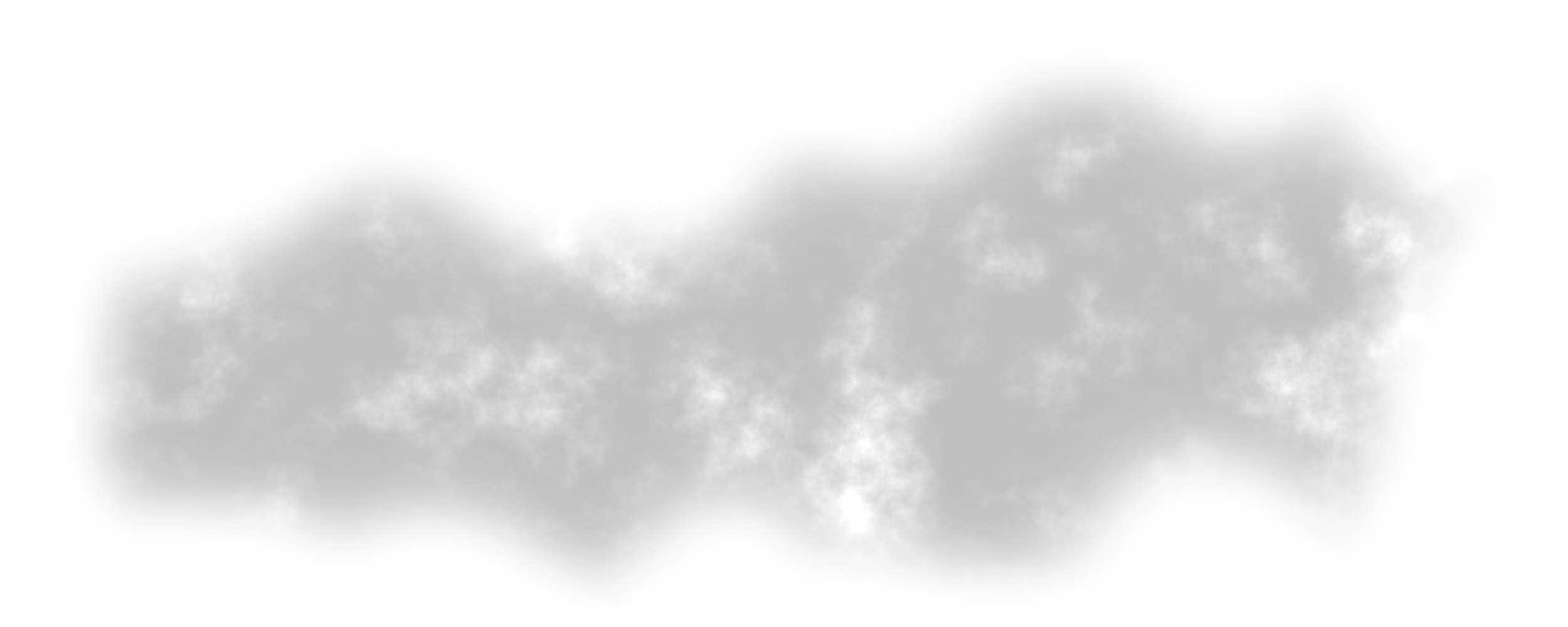


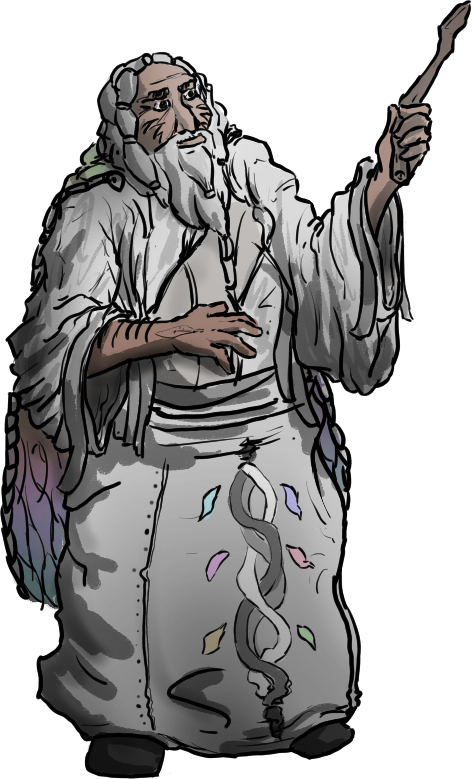
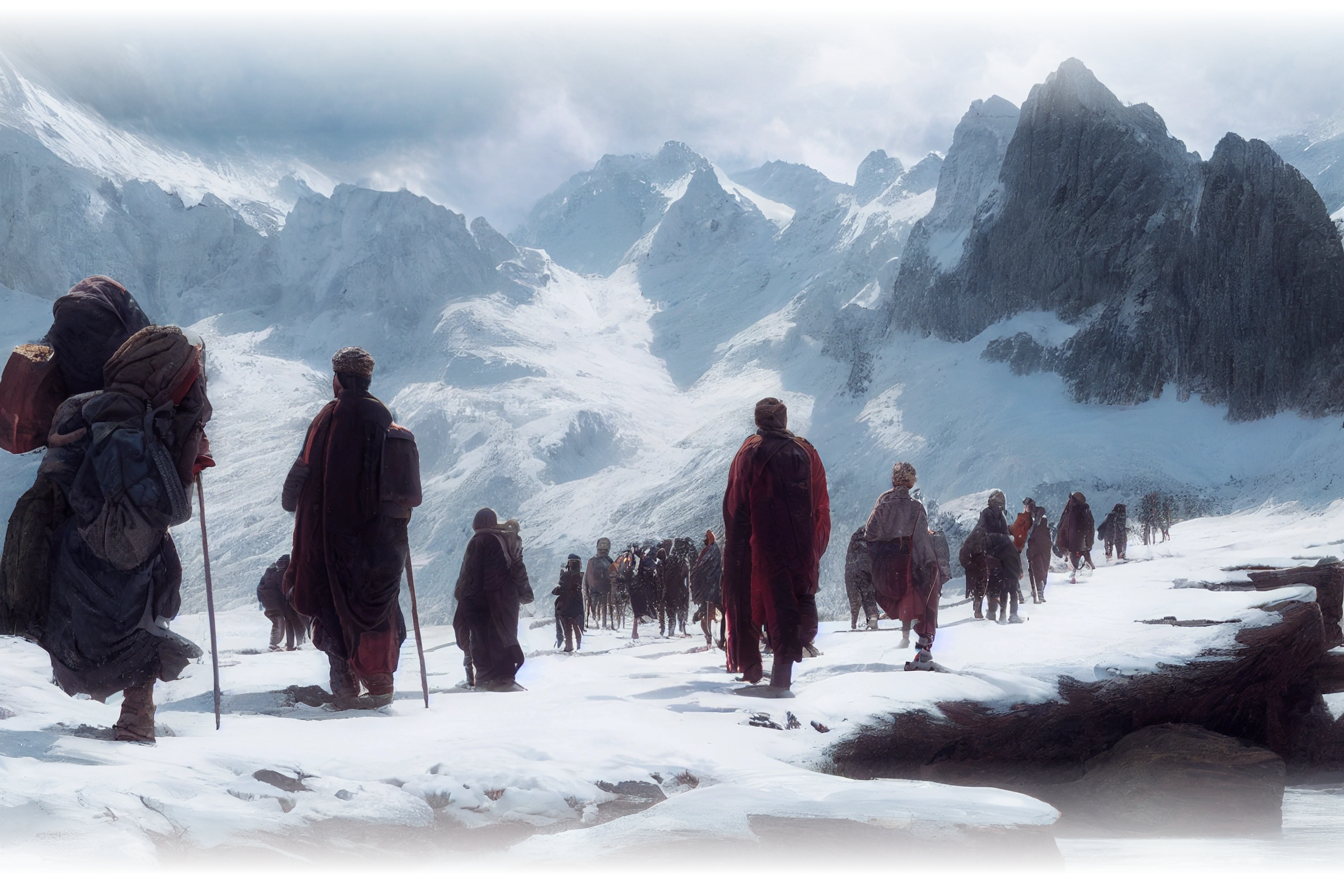

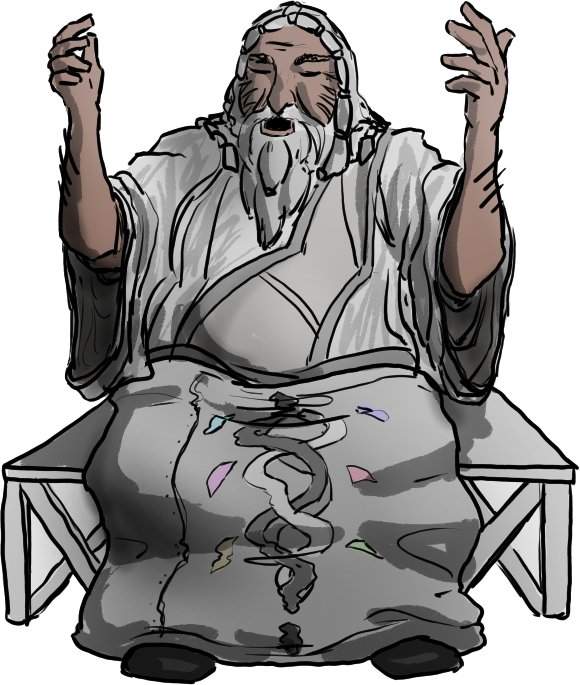
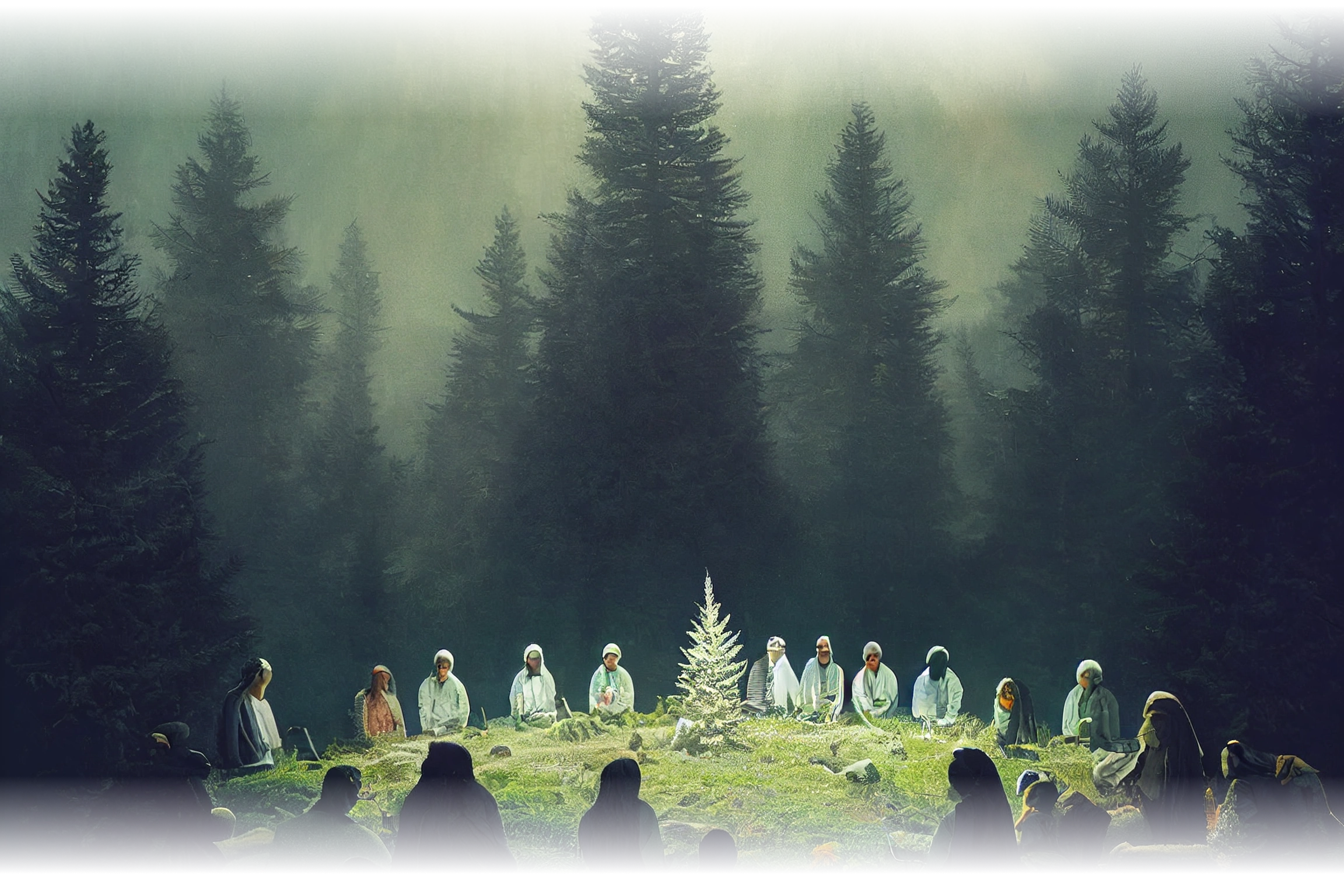








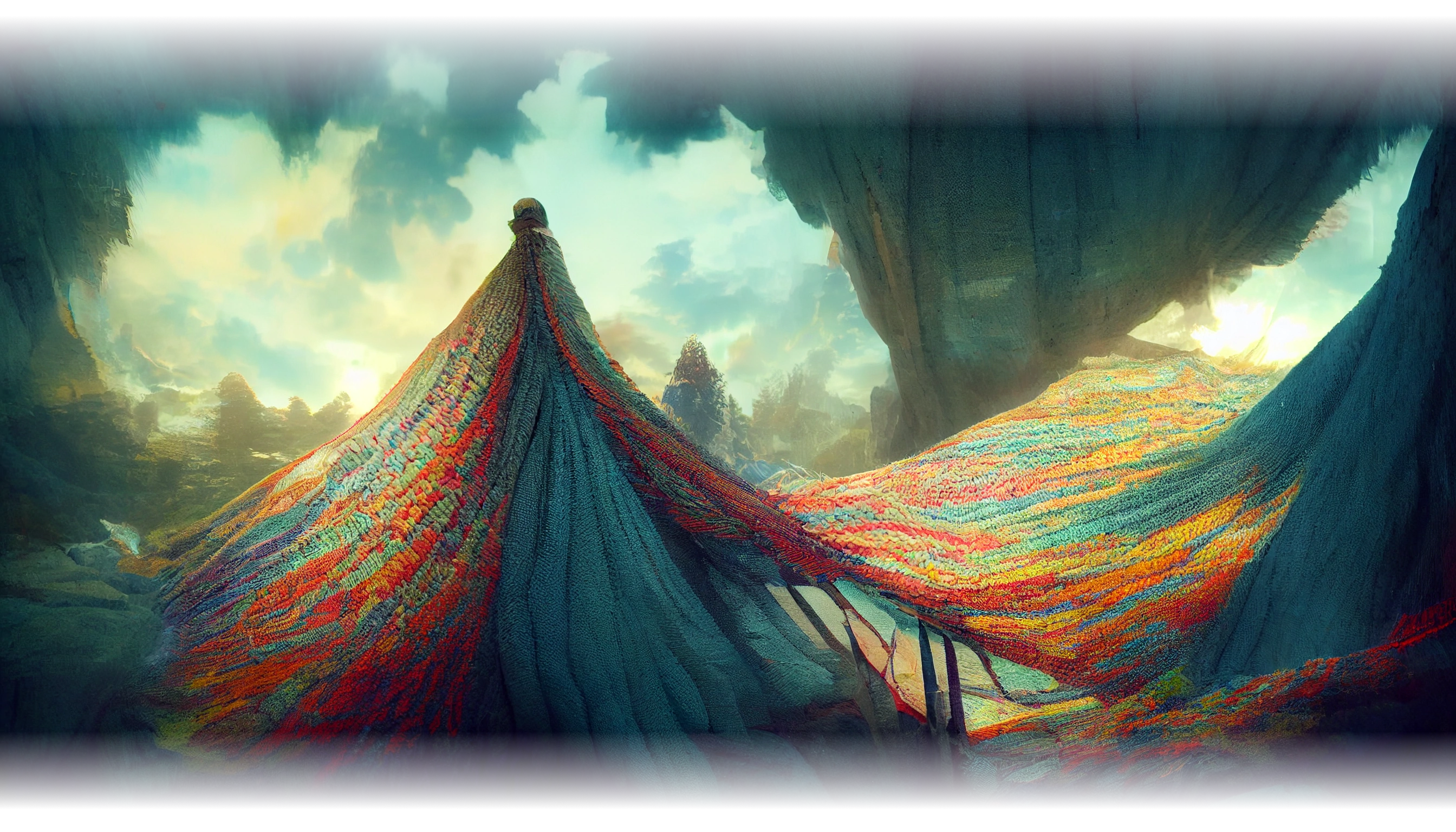



















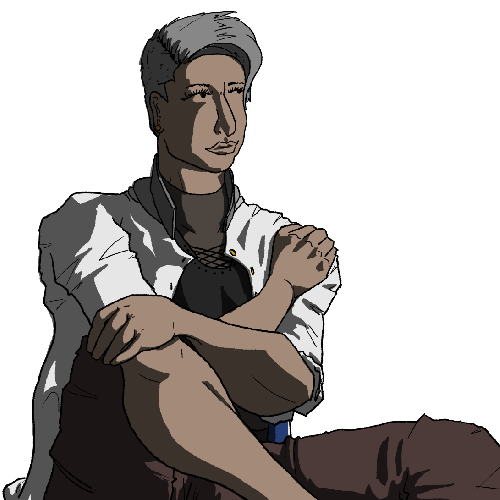

Your CSS is amazing, and the way you've structured your article makes it clear and easy to read. I love that it's told from the point of view of someone teaching about their heritage. Cool work!
Thank you Rando! :D I'm glad it comes across clear and easy to read, that was the main thing I wanted to achieve with this -- a good linear journey through someone's heritage :)
I love the progression, it's linear, but not static. The illustrations of the storyteller make it feel more personal. I am in awe...
Thank you, I'm really glad to hear that!